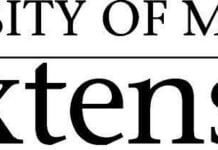In the quest to achieve financial stability and success, the role of lucid decision-making cannot be overstated. Often, individuals are in precarious financial situations due to a lack of strategic foresight and impulsive decision-making. To circumvent these pitfalls, embracing a philosophy of lucid decision-making is crucial—a mindful approach to financial planning and execution that prioritizes clarity, logic, and long-term vision over
Strategies for Enhancing Smart Decision-Making
- Educate Yourself:Knowledge is the cornerstone of lucid decision-making. Understanding the basics of personal finance, investment strategies, and market trends can empower individuals to make informed decisions. Regularly consuming financial literature, attending workshops, and consulting with financial advisors can provide valuable insights and broaden one’s perspective.
- Set Clear Financial Goals:Lucid decision-making is goal-oriented. It’s essential to define what financial success looks like for you, whether it’s achieving debt freedom, saving for retirement, or accumulating wealth through investments. Clear goals provide direction and help devise a coherent plan to achieve them.
- Develop a Budget and Stick to It:Budgeting is a fundamental tool in the arsenal of smart decision-making. It enables individuals to track their income, expenses, and savings, ensuring that financial resources are allocated efficiently. A well-structured budget is a roadmap, guiding financial choices and preventing impulsive spending.
- Assess Risks and Opportunities:Every financial decision carries its own risks and opportunities. Lucid decision-making involves thoroughly analyzing these factors, considering both short-term impacts and long-term outcomes. This risk-aware approach fosters resilience and adaptability in the face of financial uncertainties.
- Embrace Emotional Intelligence:Emotions play a significant role in financial decision-making. Fear, greed, and impatience can lead to hasty decisions with detrimental consequences. Cultivating emotional intelligence helps in recognizing and regulating these emotions, ensuring that decisions are made with a clear and composed mind.
- Regularly Review and Adjust Your Plan:The financial landscape and personal circumstances are ever-changing. Lucid decision-making is an ongoing process that requires regular evaluation of financial plans. Being open to adjustments and willing to pivot strategies in response to new information or changes in the market can significantly enhance financial resilience.
The Benefits of Smart Decision Making
Adopting a lucid decision-making approach offers numerous benefits. It enhances financial literacy, promotes disciplined saving and spending habits, and increases the likelihood of achieving financial goals. Moreover, it mitigates the risk of financial failures, such as bankruptcy or severe debt, by encouraging prudent and well-considered decisions. Ultimately, it leads to a more secure and prosperous financial future, marked by peace of mind and the freedom to pursue one’s life goals without the burden of financial stress.
In conclusion, smart decision-making is a vital skill in the realm of personal finance. It combines knowledge, strategic planning, and emotional intelligence to forge a path towards financial success and stability. By embracing this mindful approach, individuals can navigate the complexities of the financial world with confidence and clarity, ensuring that their decisions lead to a secure and fulfilling future.
Brad Pistole, a native Missourian, is a member of Syndicated Columnists, a national organization committed to a fully transparent approach to money management. Syndicated Columnists is the sole provider of this material, both written and conceptual, for this column. All rights reserved.
Trinity Insurance & Financial Services Inc. 5511 N. Farmer Branch Rd., Suite 101, Ozark, MO 65721. 417-581-9222 Brad Pistole (retirevillage.com)
















